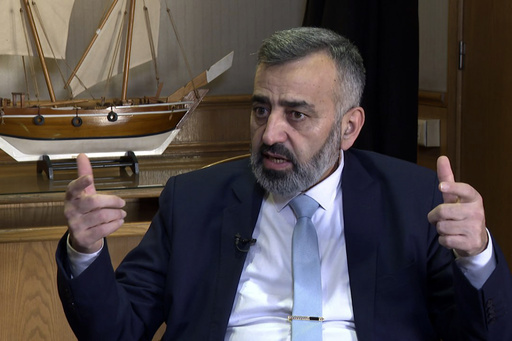DAMASCUS — A long-anticipated national dialogue conference aimed at determining Syria’s political future following the ouster of former President Bashar Assad is set to commence on Monday.
The main session is scheduled for Tuesday, where attendees will partake in workshops focusing on various critical topics including transitional justice, the development of a new constitution, governmental reforms, individual liberties, the role of civil society, and economic strategies.
The results of this national dialogue are expected to be nonbinding suggestions directed towards the nation’s new leadership.
Plans for the conference, which were pledged by the new authorities immediately after Assad’s swift ousting by rebel forces in December, have experienced several last-minute changes. The official announcement of the conference’s commencement was made just a day before it was scheduled to take place on Sunday.
Just two days prior to the announcement, Hassan al-Daghim, spokesperson for the organizing committee of the dialogue, indicated that the conference’s date was still uncertain and subject to public input. He also mentioned that the participant count had not been finalized, suggesting it could range between 400 to 1,000 individuals.
As of Monday, it remained unclear how many participants would actually attend or the criteria used for their selection.
The committee reported on Sunday that over 30 meetings had been conducted across various provinces in Syria, with around 4,000 individuals participating in the preparatory stages for the conference. This was undertaken to guarantee that different sectors of Syrian society were represented, according to the state-run news agency SANA.
Participants emphasized the need for a provisional constitutional declaration, a comprehensive economic strategy, the restructuring of government sectors, citizen involvement in institutional management, and the promotion of security and stability.
Following Assad’s removal, Hayat Tahrir al-Sham (HTS), the principal former rebel faction that now governs several areas in Syria, established a temporary administration mainly consisting of members from its “salvation government,” which had previously governed in northwestern Syria.
They asserted that a new governmental structure would be established through an inclusive process by March. In January, Ahmad al-Sharaa, a former HTS leader, was appointed as Syria’s interim president during a gathering of most of the country’s former rebel factions, where participants agreed to dissolve the existing constitution, national army, security services, and official political parties.
The armed factions that took part in the meetings also consented to disband and integrate their members into the newly formed national army and security forces. Notably, the Kurdish-led Syrian Democratic Forces, which holds significant influence in northeastern Syria, was not invited to join the national dialogue.


